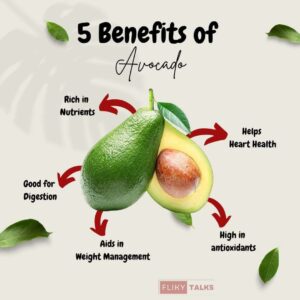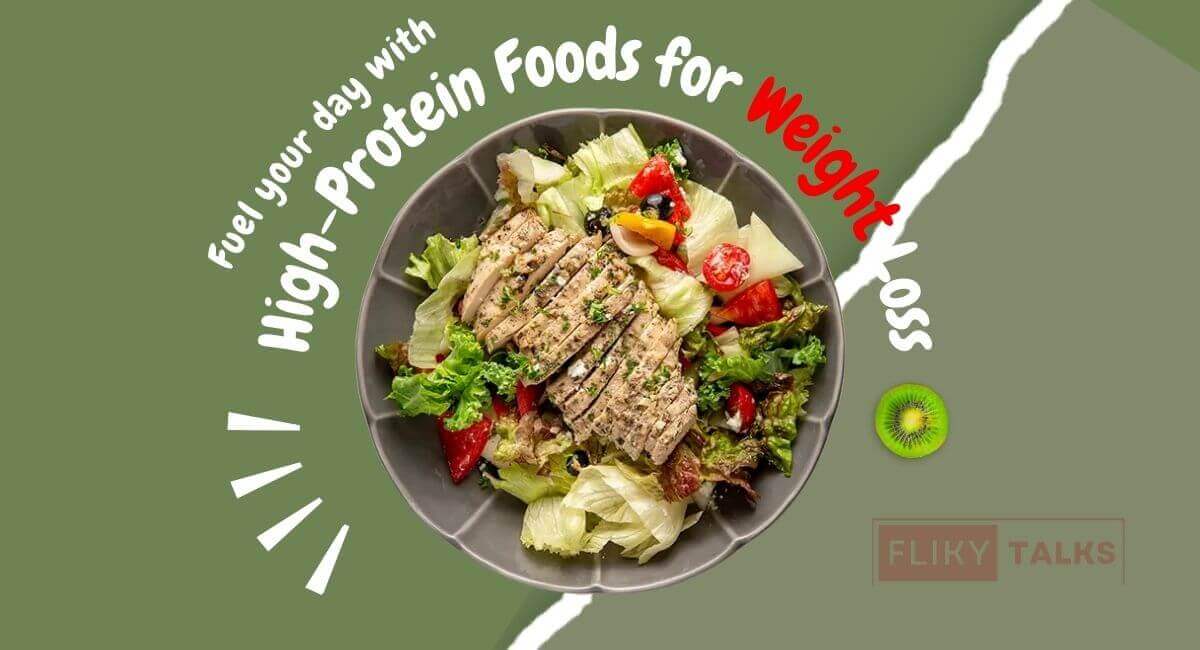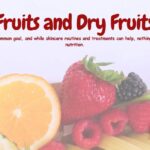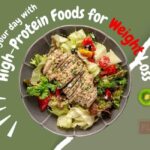Top Weight Loss Foods for a Balanced Diet in 2024 | High-Protein Foods for Weight Loss
Are you seeking a healthy way to lose weight without compromising your nutrition? You’re in the right place!
Discover the power of top weight-loss foods that can help you maintain a balanced diet while achieving your weight-loss goals.
This guide covers the best foods for effective and healthy weight management, including high-protein options for building and preserving muscle, fibre-rich foods to keep you full, and superfoods that boost your metabolism.
Whether you want to increase your protein intake, reduce cravings, or burn fat more efficiently, we have a variety of nutritious and delicious weight-loss foods for you to try.
Let’s transform your diet and make your weight-loss journey easier and more enjoyable!
Understanding the Role of Diet in Weight Loss
To achieve sustainable weight loss, it’s crucial to understand the importance of diet and nutrition.
A balanced diet incorporating weight loss foods, such as those rich in protein, fibre, and healthy fats, can play a pivotal role in your weight management journey.
Importance of Calorie Deficit
Fundamental to successful weight loss is the concept of a calorie deficit.
By consuming fewer calories than your body burns, you can create a sustained calorie deficit, leading to gradual fat loss over time.
This calorie-conscious approach helps to ensure that your body taps into its fat stores for energy, promoting a healthier and more sustainable weight loss process.
Nutrients for Optimal Weight Management
In addition to creating a calorie deficit, incorporating the right nutrients for weight management is essential.
Protein, for instance, helps to build and preserve muscle mass, which in turn boosts your metabolism.
Fibre-rich foods, on the other hand, can promote feelings of fullness and satiety, making it easier to manage your appetite and cravings.
Healthy fats, such as those found in avocados, nuts, and olive oil, can also play a role in supporting optimal weight management by providing essential nutrients and contributing to a well-rounded, balanced diet.
Superfoods for Weight Loss
When it comes to weight loss, certain nutrient-dense “superfoods” can be particularly beneficial.
These superfoods for weight loss not only provide a wealth of essential vitamins and minerals but also possess unique properties that can support your overall slimming goals.
From fibre-rich foods that promote satiety to low-calorie, nutrient-dense vegetables, let’s explore the power of these superfoods and how they can be incorporated into a balanced weight-loss diet.
Fibre-Rich Foods for Satiety
Incorporating fibre-rich foods into your diet is a game-changer for weight loss.
High-fibre foods take longer to digest, helping you feel fuller for longer and curbing the urge to overeat.

Foods like oats, beans, lentils, and berries are excellent sources of soluble fibre, which can slow the absorption of nutrients and regulate blood sugar levels.
By prioritising fibre-rich superfoods, you’ll be able to better manage your appetite and support your weight management goals.
Low-calorie, Nutrient-Dense Vegetables
Vegetables are the superstars of the weight loss food pyramid. Vegetables are the perfect addition to any slimming diet, low in calories yet packed with essential vitamins, minerals, and antioxidants.
Leafy greens, cruciferous vegetables like broccoli and cauliflower, and vibrant bell peppers are all nutrient-dense powerhouses that can help you feel full and satisfied with fewer calories.
Incorporating a variety of these low-calorie, nutrient-dense vegetables into your meals and snacks will provide a wealth of benefits for your overall health and weight management.
Protein-Rich Foods for Weight Loss
Protein is a crucial macronutrient when it comes to supporting weight loss.
Not only does it help build and preserve lean muscle mass, but it also boosts metabolism and promotes feelings of fullness, making it easier to manage cravings and maintain a calorie-controlled diet.
In this section, we’ll explore the benefits of incorporating lean meats, fish, and plant-based protein sources into your weight loss journey.
Lean Meats and Fish
Lean meats, such as chicken, turkey, and lean cuts of red meat, are excellent sources of high-quality protein.
They are low in fat and calories, making them an ideal choice for those looking to lose weight.
Similarly, fish like salmon, tuna, and cod are packed with protein, as well as healthy omega-3 fatty acids that can support overall health and well-being.
Plant-Based Protein Sources
For those following a vegetarian or vegan lifestyle, there are plenty of plant-based protein sources to incorporate into a weight loss diet.
Options like tofu, tempeh, lentils, chickpeas, and quinoa provide a concentrated source of protein, along with a range of essential nutrients and fibre to support your weight loss goals.
Regardless of your dietary preferences, including a variety of protein-rich foods in your meals and snacks can be a powerful strategy for weight loss foods with protein and weight loss foods high in protein.
These nutrient-dense options not only help you feel fuller for longer, but they also play a vital role in preserving muscle mass and boosting your metabolism, making them a key component of a balanced, sustainable weight loss plan.
Fat-burning and Metabolism-Boosting Foods
When it comes to weight loss, the foods you consume can play a significant role in revving up your metabolism and promoting fat-burning.
Certain fat-burning foods and metabolism-boosting foods contain compounds and nutrients that can help you achieve your slimming goals more effectively.
| Category | Examples | Benefits |
|---|---|---|
| Protein | Lean meats, fish, plant-based sources | 1). Increases calorie burn by requiring more energy to digest and metabolize 2). Builds and preserves muscle mass, boosting metabolism |
| Spices and Herbs | Cayenne pepper, ginger, cinnamon | 1). thermogenic compounds 2). Temporarily increases the body’s heat production, boosting calorie expenditure |
| Healthy Fats | Avocados, nuts, olive oil | 1). Promotes fullness and sustained energy 2). Helps regulate appetite and prevent overeating, aiding in a calorie deficit |
To take advantage of these fat-burning and metabolism-boosting foods, incorporate them into your daily meals and snacks.
Try grilling salmon, roasting vegetables with spices, or making smoothies with protein-rich ingredients. There are countless ways to enjoy these nutrient-dense options and support your weight loss journey.
Appetite-Suppressing Foods for Weight Control
Controlling appetite and managing cravings is a crucial aspect of successful weight loss.
This section delves into the world of appetite-suppressing foods, highlighting high-volume, low-calorie options that can help you feel fuller on fewer calories.
Additionally, we’ll explore the role of hydrating foods and beverages in supporting weight management by curbing hunger and promoting overall health.
High-volume, Low-Calorie Foods
Incorporating high-volume, low-calorie foods into your diet can help you manage your weight effectively.
Foods like leafy greens, cruciferous vegetables, and high-fibre fruits provide plenty of volume and nutrients while keeping the calorie count low.
By filling up on these nutrient-packed options, you’ll feel satisfied and full, which can lead to consuming fewer calories overall and promote sustainable weight loss.
Hydrating Foods and Beverages
Staying hydrated is essential for good health and weight management.
Hydrating foods and beverages, such as water-rich fruits and vegetables, herbal teas, and infused water, help control hunger and prevent overeating.
These options not only keep you hydrated but also serve as a low-calorie alternative to sugary drinks, which can contribute to weight gain.
By incorporating these hydrating choices into your daily routine, you can improve your overall well-being and support your efforts to manage your weight.
| Appetite-Suppressing Foods | High-volume, Low-Calorie Foods | Hydrating Foods and Beverages |
|---|---|---|
| Oats Beans and lentils Eggs Nuts and seeds | Leafy greens Cruciferous vegetables High-fiber fruits | Water Herbal tea Infused water Coconut water Cucumber water Lemon water Mint-infused water |
High-Protein Foods for Weight Loss
When it comes to shedding pounds, incorporating high-protein foods into your diet can be a game-changer.
These foods not only help you feel fuller for longer but also support muscle growth and metabolism. Here’s a breakdown of how they can benefit your weight loss journey:
Supporting a Calorie Deficit: High-protein foods are often low in calories but packed with nutrients. By including them in your meals, you can feel satisfied without consuming excess calories, helping you maintain a calorie deficit crucial for weight loss.
Boosting Metabolism: Protein requires more energy to digest than carbohydrates or fats, leading to a temporary increase in calorie expenditure. This metabolic boost can aid in fat-burning and weight loss over time.
Promoting Fullness: Protein-rich foods are known for their satiating effects. They help regulate hunger hormones, keeping cravings at bay and preventing overeating.
Incorporating a variety of high-protein foods, such as lean meats, poultry, fish, eggs, dairy products, legumes, and tofu, into your diet can help you achieve your weight loss goals effectively.
By prioritizing these nutrient-dense options, you can create a balanced and satisfying meal plan that supports both your weight loss journey and overall health.
Meal Planning Tips
Effective meal planning is a key component of a successful weight loss journey.
Begin by incorporating a variety of weight-loss foods into your weekly menu, such as lean proteins, fibre-rich produce, and healthy fats.
Experiment with different combinations and portion sizes to find what works best for your individual needs and preferences.
When planning your meals, be mindful of portion control and aim to create a calorie deficit by consuming fewer calories than your body burns.
This can be achieved by choosing low-calorie, nutrient-dense foods and being mindful of serving sizes.
Additionally, consider prepping your meals in advance to ensure you always have healthy options on hand, reducing the temptation to reach for less nutritious choices.
Healthy Cooking Methods
The way you prepare your weight loss foods can also have a significant impact on their nutritional value and your overall weight management success.
Opt for healthy cooking techniques that preserve the integrity of the ingredients and minimise the addition of unnecessary fats and calories.
Some beneficial cooking methods to incorporate include:
- Baking: Roast vegetables, lean proteins, and whole grains in the oven for a simple, flavourful, and low-fat cooking method.
- Steaming: Lightly steaming produce, fish, and other foods retains valuable nutrients and creates a tender, delicate texture.
- Sauteing: Use a small amount of heart-healthy oil or broth to sauté vegetables and proteins, avoiding heavy frying or deep-frying.
By employing these healthy cooking methods, you can unlock the full potential of your weight-loss foods and enjoy nutritious, flavourful meals that support your weight management goals.
Vegan and Vegetarian Weight Loss Food Options
Embarking on a weight loss journey while adhering to a vegan or vegetarian lifestyle opens up a world of delicious and nutritious food choices.
This section delves into the diverse array of plant-based options that can help you achieve your weight management goals while embracing a fulfilling and wholesome eating regimen.
Plant-Powered Protein Sources
Adequate protein intake is vital for weight loss, as it aids in muscle preservation, metabolism boosting, and satiety.
Thankfully, there’s no shortage of vegan and vegetarian options that deliver high-quality plant-based protein.
Look to tofu, tempeh, lentils, chickpeas, edamame, and an assortment of meat substitutes crafted from plants, all of which mimic the taste and texture of traditional animal-based proteins.
Nourishing Whole Foods
Beyond protein, integrating a spectrum of nutrient-dense whole foods into your vegan or vegetarian diet can greatly support your weight loss efforts.
Load up on an abundance of fresh fruits and vegetables, including leafy greens, berries, cruciferous veggies, and starchy gems like sweet potatoes.
Whole grains, nuts, seeds, and healthy fats sourced from avocados, olives, and nut butter further bolster your weight management endeavours by supplying essential nutrients, minerals, and antioxidants while keeping hunger pangs at bay.
By exploring a wide range of vegan and vegetarian foods suited for weight loss, you can create a balanced, nutrient-rich diet that supports your body and helps you reach your health goals.
This journey allows you to honour your dietary choices and ethical beliefs while nourishing yourself with delicious and fulfilling meals.
Checkout: High Protein Smoothies for Underweight
Incorporating Weight Loss Foods into a Balanced Diet
To achieve sustainable weight loss, it’s essential to seamlessly integrate weight loss-friendly foods into a balanced and nutritious diet.
By strategically planning your meals and utilising healthy cooking methods, you can make the most of these powerful ingredients and create delicious, satisfying dishes that support your weight management goals.
Unlocking Weight Loss Success: The Power of Mindful Eating
When it comes to losing weight and keeping it off, it’s about more than just what you eat, it’s also about how you eat.
Mindful eating is a game-changer in this regard, offering a holistic approach that nurtures a healthier relationship with food.
At its core, mindful eating encourages you to engage with your meals fully.
Instead of mindlessly munching while distracted, take the time to sit down, savour each bite, and truly appreciate the flavours and textures.
This heightened awareness helps you feel more satisfied, reducing the likelihood of overeating or making impulsive food choices.
Listening to your body is another crucial aspect of mindful eating. Pay attention to hunger and fullness cues, and honour them by eating when you’re hungry and stopping when you’re satisfied.
This prevents overeating and ensures you’re fueling your body appropriately without deprivation.
Above all, mindful eating promotes a positive relationship with food. You create a foundation for sustainable weight loss and overall well-being by approaching meals with intention, gratitude, and self-compassion.
Incorporate these mindful practices into your daily routine, and watch as they transform your relationship with food and support your weight loss journey.









